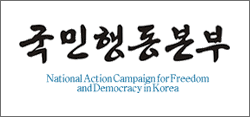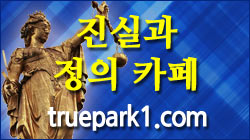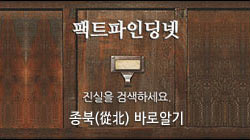by Kim Pyung-woo (Attorney and former head of Korean Bar Association)
Impeachment is a process designed by the U.S. constitution to punish and remove high-ranking government officials and public servants from office by putting them on trial. It is product of the U.S. constitution, which is based on separation of administrative, legislative and judicial powers. The U.S. assembly is composed of the House of Representatives and the Senate, with the former serving as the accuser and latter as judge in an impeachment process. The entire members of the U.S. Senate serve as jury.
In the U.S. a total of 19 individuals have faced impeachment by the House of Representatives until now with 15 of them being court justices and two presidents. But only eight of the justices ended up actually being judged by the Senate. The basic principle of democracy is to determine the appointment of a president through elections and impeaching one goes against the principles of separating administrative, legislative and judicial powers of government as well as democracy. Impeaching a president is a form of political upheaval that rarely occurs in a democratic country. Such events usually occur in lesser developed countries.
Our country adopted an impeachment process since its establishment. But contrary to the U.S., no justice have ever faced impeachment. Rather, two presidents have faced impeachment by the National Assembly. In 2004, then president Roh Moo-hyun faced impeachment by the opposition party, which accounted for a majority of the seats in the National Assembly. Twelve years later, President Park Geun-hye faces impeachment with just around a year left in her five-year term on charges of being involved in an influence-peddling and corruption scandal involving a longtime confidante. The Constitutional Court dismissed the impeachment bill targeting Roh on charges of violating the Election Law by failing to maintain political neutrality, while Park is on trial at present. So far, none of our presidents have been removed from office after being impeached. But in the course of just 12 years, our nation has seen two presidential impeachment proceedings, which rarely occur even during the course of a century in other countries. Korea's political system is facing a major crisis.
Why is that? We need to focus on the fact that both Roh and Park served are serving single, five-year terms. The concept of a single-term presidency was included in the Constitution in 1987 in order to prevent a long-term dictatorship. The single-term presidential tenure resulted in the National Assembly gaining more power and the president's authority being weakened. As a result, the president often became politically cornered when
the opposition party gained a majority of the seats at the National Assembly and impeachment became a tool to wrest leadership control from the president ahead of the next elections. The single, five-year presidential term, which was adopted in order to ensure a peaceful transfer of power, ended up falling victim to the impeachment process, resulting in political instability.
From a political perspective, this contradiction is the result of the lack of trust between political parties, which are heavily divided between conservative and progressive camps. At play is a hunger for power that drives both sides to seek out each other's weaknesses and use such flaws to topple the other side. From the perspective of a legal expert like myself, the problem lies in the laws concerning impeachment. To be more precise, the problems lie in the automatic suspension of presidential powers once the National Assembly passes a bill to impeach the leader, an extremely broad set of rational justifying impeachment and the duration of the Constitutional Court's review of the bill.
In the U.S. where the concept of impeachment originates, a president's powers are not suspended. In other words, a U.S. president can prepare for the Senate's review of the impeachment bill passed by the House of Representatives while handling official duties. Former U.S. president Bill Clinton held summits with global leaders and handled his official duties at the White House while his impeachment was being reviewed over the course of about a year. This was due to the American legal principle of innocence until proven guilty. (It is absolutely frightening to think what would have happened if North Korea attacked South Korea while Clinton's powers were suspended during his impeachment trial.) In Germany, which could be seen as being the model for our impeachment process, a leader or other government official's powers are not suspended. In order to suspend a leader's authority, the accusers must argue their case at the constitutional court of Germany.
Korea is one of the few countries in the world where a president facing impeachment is temporarily stripped of his or her powers before the Constitutional Court even reviews the case. And the rational for impeachment is extremely broad, ranging from violations of the Constitution and civil laws. If the opposition gain more than a majority of the seats at the National Assembly, even a minor mistake the president commits could lead to a movement to impeach him. In other words, opposition lawmakers could easily be tempted to deliver a fatal political blow to the president and attempt to wrest control of government. Impeachment could end up becoming a powerful political tool. Politicians may be happy to be able to grab power through any means, but the citizens of Korea end up losing more than they gain. The suspension of the powers of the president, who is the supreme commander of the military, has a severe impact on our national security, while normal diplomatic activities come to a grinding halt, resulting in massive losses for our country. If North Korea launches a provocation while the president's powers are suspended or a major economic emergency erupts, such as the Asian financial crisis, effective government responses would be impossible.
An acting president replaces the leader and the ensuing emergency state of government adds pressure on the Constitutional Court to arrive at a ruling as soon as possible. In that case, the side that loses in the impeachment trial could end up protesting the ruling leading to massive protests and other major side effects. The news media and candle-light protesters at present continue to demand that the president step down from office voluntarily. If the Constitutional Court rules in favor of Park, there is no telling what the protesters will do.
Our current system of temporarily stripping a government official of his or her powers when facing impeachment may be applicable to a court justice (considering the nature of the job that requires a high level of moral integrity), but is unsuited when seeking to impeach a president. We need to revise our laws so that a power vacuum can be avoided. Also, the rational for seeking to impeach a president should be limited to grave offenses, such as abetting the enemy or fomenting civil unrest. And in order to ensure a fair impeachment trial, we need to do away with the rule requiring the Constitutional Court to arrive at a decision within six months. Only then will we be able to prevent the impeachment process from instigating national unrest by taking advantage of the single, five-year presidency.
Dec. 15, 2016
탄핵재판중 대통령 직무정지는 무리. 법 개정하여 國政 공백을 막아야!
現行 탄핵제도의 문제점: 탄핵사유를 대통령의 직무내용에 걸맞게 외환·내란 및 중대한 법률위반으로 제한, 남발이나 誤用(오용)의 소지를 없애야.
탄핵제도는 원래 법원이 재판하기 어려운 法官(법관) 등 고위직 공무원을 국회가 재판하여 現職(현직)에서 쫒아내는 것을 목적으로 하여 미국 헌법이 만든 국회의 공무원 징계, 즉 해임 절차이다. 三權(삼권)분립을 근간으로 한 미국 헌법의 산물이다. 미국은 하원, 상원의 양원제 국회로써, 하원이 ‘고발자’, 상원은 ‘심판자’가 된다(상원의원 전원이 배심원이 된다).
미국 헌정사에서 하원의 탄핵 즉 징계청구를 받은 수는 총 19명인데 이중 15명이 法官(법관)이고 대통령은 2명이다. 상원에서 실제로 징계심판을 받은 사람은 법관 8명이 전부다. 대통령의 進退(진퇴)는 국민의 선거로 결정하는 것이 민주주의 원칙이고 국회나 법원이 탄핵으로 대통령을 해임하는 것은 三權분립의 기본원칙에도 어긋나고 민주주의 원리에 어긋난다. 대통령 탄핵은 일종의 政變(정변)으로, 선진 민주 국가에는 100년에 한 번 있을까 말까 한 異變(이변)이고 주로 南美, 아프리카의 후진국에서 일어난다.
우리나라는 建國 직후부터 탄핵제도가 있었으나 미국과는 반대로 법관이 탄핵고발된 경우는 없고, 오히려 대통령 두 사람만 국회에서 탄핵고발을 당했다. 2004년 노무현 대통령은 국회 과반수 의석을 차지하고 있던 야당으로부터 선거 중립을 지키지 않고 自黨 의원들의 당선 지지를 호소하여 법을 위반한 혐의로 고발[訴追(소추)]되었다. 12년이 지난 2016년, 제18대 박근혜 대통령이 임기 1년 여 남은 상태에서 측근비리에 연루되었다는 혐의로 고발되었다. 노무현 대통령은 憲裁(헌재)에서 경미한 違法(위법)이란 이유로 고발이 기각되었고 박근혜 대통령은 현재 재판 중에 있다. 아직까지는 탄핵으로 퇴임한 대통령은 없다. 하지만 12년이라는 짧은 기간을 두고 다른 나라에서는 100년에 한 번 있을까 말까 한 대통령 탄핵 사건이 두 번이나 연속되는 것은 세계 역사에 없는 일이다. 이는 한국의 정치안정에 적신호가 켜진 것이다.
왜 그럴까? 주목할 것은 두 사람 다 5년 단임제 대통령이란 점이다. 원래 5년 단임제는 대통령의 장기독재를 막기 위해 1987년 헌법이 도입한 것이다. 단임제 대통령이 되면서 상대적으로 국회의원들의 힘이 강해지고 대통령의 권위는 떨어져 국회 안에서 야당이 과반수를 넘게 되면 대통령을 몰아붙여 퇴임시키고, 차기 대통령 선거의 주도권을 잡는 수단으로 탄핵제도가 이용되고 있다. 평화적인 정권교체를 통한 정치안정을 위하여 도입한 ‘5년 단임 대통령제’가 탄핵제도와 만나면서 오히려 정치안정을 위협하는 모순을 일으키고 있는 것이다.
이 모순은 정치학의 관점에서 본다면, 우리나라 정치가 보수·진보로 양극화되어 상호간 불신의 골이 너무 깊다는 데에서 출발한다. 자기 힘이 상대보다 조금이라도 강하다 싶으면, 수단과 방법을 가리지 않고 상대방의 약점을 잡아 한시라도 빨리 상대방을 쓰러뜨리고 권력을 잡으려는 조급한 권력욕이 근본 원인인 것이다. 나 같은 법률가의 눈에서 보면 우리나라 탄핵제도가 가지고 있는 法制(법제) 상의 허점이 문제다. 즉, 국회가 탄핵고발을 하면 자동으로 被(피)탄핵자의 직무를 정지시키는 당연 직무정지와 포괄적인 탄핵사유, 그리고 심판기간의 제한 등이 문제다.
탄핵제도의 원조인 미국에서는 직무가 정지되지 않는다. 즉, 下院이 대통령을 징계청구해도 상원의 심판기간 중 대통령의 직무가 정지되지 않아 대통령은 여유있게 국정수행을 계속하면서 上院의 재판에 대비할 수 있다. 실제로 클린턴은 1년 여 탄핵재판 기간 중에 세계 頂上(정상)을 만나고 백악관에서 직무를 수행했다. 대통령직 임무 수행에 아무 지장이 없었다. 판결 시까지는 무죄 추정하는 미국의 수정헌법이 적용된 것이다(만일 탄핵을 받아 미국 대통령의 직무가 장기간 정지되어 있는 중에 북한이 남한을 핵공격 했다면? 생각만 해도 끔찍한 재앙이다). 우리나라 탄핵제도의 모델이라고 할 독일의 경우도, 국회 고발로 被고발자의 직무가 정지되지 않는다. 직무정지 사유를 소명하여 헌법재판소로부터 별도의 승인을 받아야 한다.
유독 우리나라만이 국회가 탄핵소추하면 憲裁의 停止(정지) 결정도 없이 바로 직무가 정지된다. 탄핵사유도 헌법위반·법률위반 등으로 너무 포괄적이다. 만일 야당이 과반수를 크게 넘어 국회를 장악하면, 대통령의 작은 과오나 실수만 있어도 이를 구실로 대통령을 탄핵하여 직무를 정지 시킬 수 있다. 대통령에게 정치적인 치명적 타격을 주어, 정국 주도권을 잡으려는 유혹에 쉽게 빠질 수 있다는 뜻이다. 즉, 탄핵소추 자체가 큰 정치적 무기가 된다. 정치인들로서는 수단 방법을 가리지 않고 정권만 잡으면 勝者(승자)가 되지만, 국가(국민) 입장에서는 국군 통수권자인 대통령의 직무정지로 인해 안보에 허점이 생기고 정상외교도 안 되어 國益(국익)에 막대한 지장이 생긴다. 경제·治安(치안)에도 불안이 가중되는 등 국가적으로 막대한 피해가 생긴다. 만일 이 직무정지 기간 중에 북한이 군사적 도발을 하거나, 외환위기 같은 것이 생기면 정상외교도 제대로 안 되고, 軍통수권 행사도 제대로 안 되는 상태에서 효율적인 대응을 할 수 있을지 의문이다.
대통령의 직무가 정지되어 代行(대행)체제라는 비상체제가 되므로 법원으로서도 하루 빨리 재판해야 한다는 심리적 부담도 커져 ‘졸속재판’이 되기 쉽다. 그리되면 자칫 재판 결과에 불만을 갖는 측으로부터 판결에 불복하는 시위 등 거센 逆風(역풍)이 불어 憲裁 자체가 위기에 빠질 수 있다. 지금 언론과 촛불 시위대는 탄핵재판 중에도 대통령 下野(하야) 캠페인을 계속하는데, 만일 憲裁가 탄핵소추를 기각할 경우 과연 조용히 승복할지 의문이다.
현재 우리나라의 당연 직무정지 제도는 원래 탄핵제도가 대상으로 한 법관 탄핵에는 (고도의 청렴성이 요구되는 법관의 직무 특성에는) 맞을지 몰라도, 국가원수인 대통령의 탄핵에는 전혀 맞지 않아 문제가 있다. 하루 빨리 대통령 탄핵법을 별도로 제정, 당연 직무정지를 없애 국정의 공백을 막아야 한다. 탄핵사유도 대통령의 직무내용에 걸맞게 외환·내란 및 중대한 법률위반으로 제한하여 남발이나 誤用(오용)의 소지를 없애야 한다. 그리고 심판기간을 6개월로 제한하는 규정도 없애 공정한 재판을 보장해야 한다. 그래야 대통령 탄핵제도가 오히려 단임 대통령제의 장점을 파괴하여 국가의 불안을 조장하는 모순을 막을 수 있다.
2016. 12. 15. 金平祐(김평우)
(한국·미국 변호사, 제45대 대한변호사협회 회장, 2012년 이후 UCLA 비지팅 스칼라)












 Kim Pyung-woo
Kim Pyung-woo








 트위터
트위터 페이스북
페이스북 네이버
네이버




























